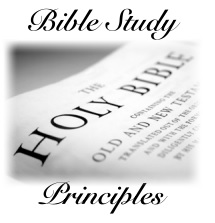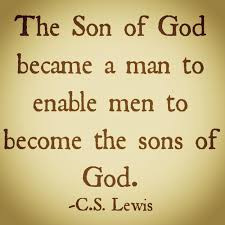Pastor A. W. Weckeman – May 2014

In order to receive spiritual truth you must have a regenerate heart, having been born of the Spirit through faith in Jesus’ substitutionary death on your behalf. “…repentance toward God, and faith toward our Lord Jesus Christ” (Acts 20:21).
According to, (1 Cor.2:14) an unsaved person cannot understand the Bible: “…the natural man [unsaved] receiveth not the things of the Spirit of God: for they are foolishness unto him: neither can he know them, because they are spiritually discerned.” [Emphasis mine]. Also consider, (Prov.1:23).
To receive spiritual truth, you must have a regenerate heart, having been born of the Spirit through faith in Jesus’ substitutionary death on your behalf. “…repentance toward God, and faith toward our Lord Jesus Christ” (Acts 20:21).
According to (1 Cor.2:14), an unsaved person cannot understand the Bible: “…the natural man [unsaved] receiveth not the things of the Spirit of God: for they are foolishness unto him: neither can he know them, because they are spiritually discerned.” [Emphasis mine]. Also, consider (Prov.1:23).
A Miners Attitude
After salvation, all who desire spiritual growth must develop a “Miners Attitude” toward God and His word (Prov. 2:1-5): “My son, if thou wilt receive my words and hide my commandments with thee; So that thou incline thine ear unto wisdom, and apply thine heart to understanding; Yea, if thou criest after knowledge, and liftest up thy voice for understanding; If thou seekest her as silver, and searcheth for her as for hid treasures; Then shalt thou understandeth the fear of the LORD, and find the knowledge of God.”
Proverbs 25:2 states, “It is the glory of God to conceal a thing: but the honour of kings is to search out a matter.” The Bible does not always provide quick answers to our questions; much truth lies beneath the surface, requiring a disciplined, diligent approach.
“The Bible is no lazy man’s book: much of its treasure, like the valuable minerals stored in the bowels of the earth, only yield up themselves to the diligent seeker.” For this reason, we are commanded to “Study to shew thyself approved unto God, a workman that needeth not to be ashamed, rightly dividing the word of truth” (2 Tim.2:15).
Biblical truth is learned progressively, “For precept must be upon precept, precept upon precept; line upon line, line upon line; here a little, and there a little…” (Isa.28:10). While it is true that the Lord uses the preaching and teaching ministries of the spiritually mature, ultimately, the indwelling Holy Spirit is the Teacher; he is the One who gradually adds “precept upon precept.” Consider, “But the anointing which ye have received of him abideth in you, and ye need not that any man teach you: but as the same anointing teacheth you of all things, and is truth, and is no lie, and even as it hath taught you, ye shall abide in him.” (1 John 2:27). Also consider, (John 14:26, 16:13).
Guiding Principles
There are essential principles in every area of life that inform our understanding, governing how things are done, fundamental laws, and timeless techniques that consistently produce proven results. The same is true when studying the Bible. Any attempt to study the Scriptures without utilizing sound principles of interpretation will inevitably lead to incorrect conclusions (false doctrine). “Jesus answered and said unto them, Ye do err, NOT KNOWING THE SCRIPTURES, no the power of God.” (Matt. 22:29) [Emphasis added]
“That we henceforth be no more children, tossed to and fro, and carried about with every wind of doctrine, by the sleight of men, and cunning craftiness, whereby they lie in wait to deceive; But speaking the truth in love, may grow up into him in all things, which is the head, even Christ…” (Eph. 4:14-15). Additional, (2 Peter 3:16-17 & 2 Tim.2:15-18).
Sound Doctrine the Primary Goal of Bible Study
Noah Webster’s 1828 dictionary defines doctrine; “in a general sense whatever is taught. Hence, a principle or position in any science; whatever is laid down as true by an instructor or master.” When the Bible speaks of sound doctrine, it refers to absolute truth, immutable principles established by God.
Sound doctrine is critically important to God’s people, especially the young. The sooner a new believer is taught the principles of sound interpretation, the sooner they will be grounded in sound doctrine and less likely to be deceived. Never is this more important than in the latter days in which we live. Numerous portions of Scripture prophesied the present intensification and propagation of “false doctrine.” Consider: “Now the Spirit speaketh expressly, that in the latter times some shall depart from the faith, giving heed to seducing spirits, and doctrines of devils; Speaking lies in hypocrisy; having their conscience seared with a hot iron…” (1 Tim. 4:1-2).
“I CHARGE thee therefore before God, and the Lord Jesus Christ, who shall judge the quick and the dead at his appearing and his kingdom; Preach the word; be instant in season, out of season; reprove, rebuke, exhort with all longsuffering and doctrine. For the time will come when they will NOT ENDURE SOUND DOCTRINE; but after their own lusts shall they heap to themselves teachers, having itching ears; And they shall turn away their ears from the truth, and shall be turned unto fables.” (2 Tim.4:1-4) [emphasis mine]
Similar to a Jigsaw Puzzle
The Bible is the Christian’s compass, God’s guiding light for humanity, and the divine blueprint for the ages in the form of a jigsaw puzzle. Like each piece of the puzzle, each book of the Bible has a dominant theme and particular purpose, progressively contributing to the whole. As each piece falls into place, a picture gradually comes into view. Some puzzle pieces are so close, right color, shape, and pattern, that they seem to fit. However, it takes extra effort to place them. The same is true of Scripture. It can be “wrested” (2 Peter 3:16), twisted, made to fit…especially if it conforms to a preconceived notion. Just as the numerous pieces of a jigsaw puzzle must be carefully examined to understand where it fits and how it contributes to the overall picture, we must objectively study, by diligent comparison, the books of the Bible to know how the different parts form the whole.
It is critical to our understanding that we correctly discern the natural divisions (dispensations) and their doctrinal distinctions lest we misapply differing principles exclusive to one people group to another.
“God, who at sundry [different] times and in divers [various] manners spake in time past unto the fathers by the prophets, Hath in these last days spoken unto us by his Son…” (Heb.1:1-2) “For the law was given by Moses, but grace and truth came by Jesus Christ.” (John 1:17). Hence the indispensable command: “Study to shew thyself approved unto God, a workman that needeth not to be ashamed, RIGHTLY DIVIDING the word of truth.” (2 Tim.2:15) [emphasis mine].
The Guiding Principles of Sound Interpretation
- Always consider Context
Context always contributes to the meaning of a passage of Scripture. Words are defined by their usage. To take a verse out of context is to remove it from its surrounding element to interpret it in a manner that was not intended. A text without a context is a pretext (a lie designed to cover a truth).
Did you know that the Bible says that “there is no God” “The fool has said in his heart there is no God” (Ps.14:1)? Extracting Scripture from its context to distort its intended meaning is a primary tactic of false teachers, the root of counterfeit Christianity (2 Peter 3:16 b).
Always consider the context when determining the meaning of a verse. Consider the book’s overall theme and chapter by reading before and after the verse in question. Ask yourself the following questions:
1st What is the central theme of this chapter?
2nd Who is being addressed: The saved or the lost? The Jew, Gentile, or the Church of God (1 Cor.10:32).
3rd What dispensation is being discussed? The Law, Grace, Millennium (See, Time-Line)
Pay close attention to the context and remember the five Ws of news reporting; who, where, when, what, and why.
Examples of misrepresented Scripture:
The Church was founded upon Peter; (Matt.16:18), the first Pope? Consider; (1 Cor.10:4, 1 Cor. 3:11, 2 Sam.22:32, Ps.18:32 & Ps. 62:2). As affirmed in Peter’s confession, the rock or foundation upon which the Church is built is Jesus Christ (Matt.16:16). Compare (Acts 8:37). How do we enter the Church (Body of Christ?) “That if thou shalt confess with thy mouth the Lord Jesus, and shalt believe in thine heart that God hath raised him from the dead, thou shalt be saved” (Rom. 10:9).
The hierarchy of the Jehovah’s Witnesses claims to be the 144,000 of Rev.7:3-4??? The context is clearly “The Tribulation” Jews “…of all the tribes of the children of Israel” Compare (Rev.14:1-5) virgins.
Must do good works to be saved, (Phil.2:12). Notice the phrase is “work out,” not “work for.” God has to put something in before it can work its way out; consider (vs. 13). Then compare (Phil.1:6). Paul is addressing believers concerning their walk; the context has nothing to do with salvation.
Loss of salvation; (John 15:6). This verse, taken by itself, would indicate that a believer could lose his salvation. Yet, upon careful examination of the whole chapter, it becomes apparent that the subject being discussed is fruit-bearing (our works), not salvation! Besides, men never cast men into hell.
Must believers endure to the end to be saved? (Matt. 24:13). The context of Matthew chapter 24 is clearly defined in verse #3; the subject being discussed is the Tribulation. After the rapture of the Church (1 Thess.4:13-18). A period of time when believers will have to endure until the end (either the end of that period or their life). Considering; Rev.13:13-18 & 14:9-13. The context of Matthew 24 is “The time of Jacobs trouble…” (Jer. 30:7) “The Great Tribulation.”
Baptism & Salvation (Matt.3:15-17). During the “Church Age,” do we receive the Holy Spirit upon water baptism? Verse 15 explains the purpose of Jesus’ baptism. “…to fulfill all righteousness” Jesus’ baptism was the first step of His public ministry to the nation of Israel, the ministry of repentance and reconciliation.
A major component of His ministry to save the lost involved Jesus fulfilling the Law (Matt.5:17) and dying in our stead. Jesus’ baptism was in submission to His Father’s will, part of the plan to manifest Himself to Israel as their Messiah, the “Son of God.” This event was a sign for John the Baptist (John 1:29-34). John’s baptism was a “baptism of repentance” to prepare Israel to accept their Messiah-King! Compare, (Luke 3:1-4 & Acts 19:3-5). Jesus’ baptism fulfilled two purposes: it prepared the nation for Christ and presented Christ to the nation.
Romans 8:13 “ye shall die:” Lose your salvation? It would seem that way, except that Romans is a progressive book; it starts with the unsaved man and ends with mature believers. Chapters 6-8 are the classic chapters on the inner struggle between two diverse natures providing instructions for “walking in the Spirit,” which is confirmed by the Holy Spirit mentioned 19 times in chapter 8 alone. Salvation is the subject of chapters 3-5.
Considering the context of chapter 8, it is apparent that Paul is referring to the loss of spiritual fellowship, not salvation. When we grieve or quench the Holy Spirit and “live in the flesh” (in sin), we break fellowship with the Lord. In the word of God, the idea of being alive can mean being in union (fellowship) with God. Death can refer to being separated from Him (Consider, “The Prodigal sons’ separation from his father” Luke 15:24) “This my son was dead, and is alive again; he was lost, and is found.”
Actual spiritual living can only occur while we are “walking in the Spirit” being led of the Spirit…all that is outside the leading of God’s Spirit is of ourselves, of the flesh, and therefore dead. The unyielded believer renders himself unusable, dead in the sense of service for the Lord and spiritual living, health, and blessings. Consider (Rom.6:16). The price of continuous disobedience can also be weakness, sickness, and even physical death (1 Cor.11:27-32 & 1 Cor.5:1-5). Notice that even though this believer’s sin brought about severe judgment, he didn’t lose his salvation (vs.5).
Another standard method used by the enemy is to add or subtract from the word of God. Go to (Matt. 4:6) notice how the enemy misrepresents the text; he stopped at vs. # 12, compare (Ps.91:13-14). Hence the warning found in (Rev.22:18-19).
- The Importance Principle of Literal Interpretation
The key to correct interpretation is to believe what you read, as you find it, in light of the context. Always take a passage of Scripture literally until it is impossible to do so.
“When the plain sense of scripture makes common sense, seek no other sense, but take every word at its primary meaning, unless the facts of the immediate context clearly indicate otherwise.” Dr. D.L. Copper.
The Use of Symbolism, Metaphors, and Hyperbole in the Word of God
Symbolism: It is important to recognize the use of Symbolism in the Bible. The definition of Symbolism: “Of or expressed by symbols.” An object used to represent something else, especially something abstract (non-material).” Example: a dove picturing the Holy Spirit (John 1:32).
Symbols are almost always defined within the context (John 2:19-21) or somewhere else in the scriptures, compare (John 4:10 with John 7:38-39). Also, consider (John 10:9 with John 14:6) and (Rev.1:12 with Rev.1:20).
A primary example of the danger of taking symbolism literally is the Roman Catholic interpretation of (John 6:53-55). Must we literally eat Jesus’ flesh and drink His blood to be saved? Jesus clarifies His use of Symbolism in (John 6:47-51 & 63).
In this situation, the Lord deliberately used Symbolism to form a “hard saying” (ver.60) to “purge the dross.” That is, separate the wheat from the chaff; consider verse 6:66. The drinking of blood is forbidden in both testaments (Lev.17:10-14 & Acts 15:20).
Metaphors, which are figures of speech, are another means by which the Bible employs symbolism, using things easily recognized to clarify other things not so easily understood. In this manner, the scriptures communicate from the known to the unknown. Example: “Ye are the salt of the earth…” (Matt.5:13), illustrating the lesson that just as salt can flavor and preserve food, Christians should have a flavoring and moral influence on their culture.
Hyperbole is yet another means by which the Bible uses symbols to teach. Hyperbole is an exaggeration to affect a striking statement used to get our attention.
For example, consider (Matt.7:3). Obviously, it is impossible to have a beam in one’s eye, yet this deliberate exaggeration graphically illustrates the self-deception of hypocrisy.
Biblical Symbolism is an effective means of illustrating and communicating truth.
However, unfortunately, it has given rise to spiritualizing critical passages of Scripture that were meant to be taken literally.
- Three People Groups addressed in the Bible; the Jew, the Gentile & the Church (1 Cor.10:32)
“A common error is found in the popular belief that every part of the Bible is to be interpreted as directly referring to the “Church age”…or as pertaining to every believer, at every stage of world history. There could be no greater stumbling blockdevised to hinder a correct understanding of the word of God. The Bible must be rightly divided as to its subject matter. All scripture is “for our learning” (Rom.15:4, 1 Cor.10:11). That is to say, the word of God is written FOR all peoples and FOR all time. Yet, equally true, is the fact that not every part of it is addressed TO all people or ABOUT all people IN all time.” C.I. Scofield
“Every word is written FOR our learning and contains what we ought to know. Yet its subject matter is written according to the principle found in (1 Cor.10:32) concerning one of these three distinct classes of people, separately or combined: The Jew, the Gentiles, and the Church of God. Therefore, scripture, not specifically written to us or about us may or may not apply; while Scripture written to us and about us always applies!”
“To take that which is written to one specific group of people living in a particular time frame, under a unique administration (dispensation) and apply it to another equally unique group is a sure recipe for confusion and will always result in misinterpretation of the scriptures.”
A prime example of this truth is found in mixing Law & Grace. (Consider side by side handout below, comparing Law & Grace). For more info. See Article: “Rightly Dividing the Word Of Truth” listed on Home Page.
Law vs. Grace
“For the law was given by Moses, but grace and truth came by Jesus Christ.” John1:17
A Dividing Veil (Ex.26:33) A Veil rent (Matt.27:51, Heb.10:19, 22)
Blots out the sinner (Ex.32:33) Blots out the sin (Col.2:14)
Curses the offender (Gal.3:10) Covers the offender (Rom.4:7)
Do and live (Deut.8:1) Done for the sinner (John 19:30, Matt.5:17)
Every mouth stopped (Rom.3:19) Every mouth opened (Rom.8:10)
Graven on stone – outward (2 Cor.3:3) Graven on the heart – inward (2 Cor. 3:3)
Judgment (Ezek. 18:20) Justification (Rom.3:24)
Love demanded (Deut.6:5) Love exhibited (John 3:16)
Nearness impossible (Ex.20:21) Nearness certain (Eph.2:12-15)
Prodigal stoned to death (Deut.21:20,21) Prodigal robed & feasted (Lk.15:20,22)
Retaliates (Ex.21:24) Redeems (Gal.3:13)
Sanctification demanded (Lev.11:44) Sanctification bestowed (1 Cor.1:30)
Three thousand slain (Ex.32:28) Three thousand saved (Acts 2:41)
Obviously, God’s former dealings with the nation of Israel (under the Law) differ considerably from His dealings with the Church (Body of Christ) today.
Do you have your children stoned to death when they rebel against you? (Deut.21:18-21). Do you wear clothes of combined fabric (cotton & wool)? (Deut.22:11). Do you eat pork and shellfish? (Lev.11). Do you slay a lamb when you sin? (Lev.5:6) Women, do you wear pants? (Deut. 22:5). Do you realize that if you break one commandment, you are guilty of them all? (James 2:10).
Every book, chapter, and verse have a specific doctrinal context. Examples: (Matt.24:3) “the sign of my coming, and the end of the world?” With the context of the chapter clearly defined in verse 3, how could anyone misapply verses 13 & 14 to the Christian living in the “Dispensation of Grace?”
Also, consider; Joel Chapter 2 “…the day of the Lord…” the Second Advent.
Another example would be (James 1:1) “…to the twelve tribes…” Of which tribe are you? The book of James is obviously addressed to the twelve tribes of the nation of Israel with a message that has SOME distinctly Tribulation components” D. Stauffer.
The very first verse of James lets us know that this book is addressed to Jews: historically, early first century Hebrew believers. Doctrinally, the Jew during “the time of Jacob’s trouble” (Tribulation). This is NOT to say the book of James is void of any principles applicable to the Church age. However, while many verses can be applied (inspirationally) to the saints living in the dispensation of grace, others do not. Knowing the difference makes the difference.
- God chooses the exact words He wants to use and the events recorded to teach us something.
Compare: (John 20-30-31 w/John 21:24-25). God took everything He did and said and handpicked EXACTLY what He wanted us to have – word by word! This truth should change our perspective concerning the Bible – every single word was selected from many by God Himself for us. (Prov.30:5-6, Ps.12:6-7).
Miracles of Jesus were chosen from many for a reason, the exact things He wanted us to understand.
Not all of Paul’s epistles were preserved – there were three letters to the Corinthians; (2 Cor.13:1). Paul also wrote a Laodicean epistle (Col.4:16).
God not only chose what He wanted us to have but in what order–the Books of both Old and New testaments are not in chronological order; 1 Thessalonians, not Romans, was Paul’s first epistle.
The individual words of the Bible hold the key to understanding its message. Refer to the list at the end of the chapter.
- The invisible things of God can be understood by studying the things God has created.
The first chapter of Romans declares much can be understood by reasoning from the finite to the infinite (from the seen to the unseen). The Godhead manifested in threes in creation. Examples: Time – past, present, future. Space – length, width, and depth. Matter – solid, liquid and gasses, etc. This is true because the things seen were created by things unseen (Heb.11:3, Ps.33:6-9).
The heavens reveal His glory and righteousness (Ps.19:1-5, Ps.97:6).
God draws man to Himself through, His creation, His word, His Spirit, and living epistles (2 Cor.3:2-3). Yielded, Spirit-filled Christians are an outward, the physical manifestation of an inward (invisible) spiritual reality. The believer is to be God’s means of manifesting and expressing Himself. “To reveal his Son in me…” (Gal.1:16).
- The Bible is of no private interpretation.
“Knowing this first, that no prophecy of the Scripture is of any PRIVATE INTERPRETATION. For the prophecy came not in old time by the will of man: but holy men of God spake as they were MOVED BY THE HOLY GHOST.” (2 Peter 1:20-21) [Emphasis added].
Private interpretation forms a bias in favor of our “own [intellectual] understanding” (Prov.3:5); a personal viewpoint or erroneous teaching which tends to solidify over time.
“Well, I have always been taught and have come to believe.” “The great Dr. so and so says…or I heard on Christian radio or read on the internet.”
Always be ready to change whatever you have been taught or have come to believe when it is contrary to what the Bible says. Avoid the pitfall of attempting to make the Bible line up with what you think; instead, always line yourself up to what the Bible states. Be careful not to allow your pride or intellect to close your mind and rob you of the truth. “The pride of thine heart hath deceived thee…” (Obadiah 1:3).
“Deception has all to do with the mind and means a wrong thought admitted to the mind under the belief that it is truth. Assumed knowledge is as dangerous as ignorance, since it closes the mind to truth.” Jessie Penn Lewis
People generally approach the subject of Bible interpretation from three different perspectives: First, “I sincerely want to know what it means.” Second, “I know what I think it means.” Third, “I know what I want it to mean” (to align with my preconceived ideas).
In reality, the second and third methods are based on private interpretation; someone’s opinion is derived from their interpretation. The first (correct) approach humbly acknowledges the inadequacy of human intellect, choosing to rely on illumination from God’s word and Spirit.
“…God resisteth the proud, and giveth grace to the humble.” (1 Peter 5:5).
All interpretations must be made by comparing Scripture with Scripture.
“Now we have received, not the spirit of the world, but the spirit which is of God; that we might know the things that are freely given to us of God. Which things also we speak, not in the words which man’s wisdom teacheth, but which the Holy Ghost teacheth; COMPARING SPIRITUAL THINGS WITH SPIRITUAL.” (1 Cor.2:12-13) [Emphasis added].
“It is the Spirit that quickeneth; the flesh profiteth nothing: the WORDS that I speak unto you, THEY ARE SPIRIT, and they are life.” (John 6:63) [Emphasis added].
In reality, the word of God is absolute truth: “Sanctify them through thy truth: THY WORD IS TRUTH.” (John 17:17). “Every word of God is pure…” (Prov.30:5). “…the word of God which liveth and abideth for ever.” (1 Peter 1:23).
Hence the Bible (King James Bible) is its own commentary and is not to be compared to or judged by imperfection, i.e., commentaries, dictionaries, intellectualism, philosophy (Col.2:4-8), religious traditions (Matt.15:1-9).
Also see, (Matt.24:35, Ps. 12:6-7, Ps.119:89). We could debate all day about the law of gravity and discuss countertheories, but in the end, the law of gravity remains unchanged as God’s word. IT IS ABSOLUTE!
When someone states, upon being confronted with the truth of God’s word, that’s only your interpretation; it’s more than ridiculous of your conviction. The subtle implication is that there is no such thing as absolute truth; after all, “everything is relative.” The erroneous rationale of modern thinking is that absolute truth is unobtainable; even if it existed, it would be open to everyone’s interpretation.
Of course, the Bible says no such thing; as a matter of fact, it states just the opposite:
“For this cause also thank we God without ceasing, because, when ye received the WORD OF GOD which ye heard of us, ye received it not as the word of men, but as it is in truth, the WORD OF GOD, which effectually worketh also in you that believe.” (1 Thess.2:13) [All Emphasis added].
Just because the word of God is subject to man’s interpretation doesn’t mean that the truth is unobtainable! There may be many different applications, yet there can be only one correct interpretation.
- Always give the Bible the benefit of the doubt.
There are no contradictions in the word of God, only alleged inconsistencies. That which seems to be contradictory in the Bible serves two purposes:
1st, God provides the rope for the skeptic and the scorner to hang themselves (2 Thess.2:10-12), not only the skeptic but also the self-deceived (Ezek.14:1-11). Also, consider (Isa.29:9-14).
2nd To reveal a hidden truth, consider (John 3:1-10) “How can these things be?” That which seems to be a contradiction is, in reality, a paradox revealing a deeper truth to someone with the right heart attitude. See (John 6:52-63); contradiction led to conversion (John 19:39).
Examples of alleged contradictions: (Gen.22:1 w/James 1:13). Then see (James 1:2-3 and Gal.4:13-14). The word “tempt” has two meanings 1st to entice or incite to evil, James 1:13-15. 2nd To try, prove, or put to the test. (Heb.11:17).
Another example: (Gal.2:16 w/James 2:20, is justification by faith or works?
It’s not what we say that authenticates our faith; it’s what we do! Justified in the sense that works prove faith to be genuine. Remember, the book of James is addressed to the Jew and contains numerous Tribulation references.
- The law of first mention.
First mention defines the standard. Example: (Gen.3:1) The nature and tactics of Satan (serpent), deceit and doubt. (Gen.2:3) The definition of sanctification: set apart as holy unto God. Also consider (Lev.20:26, Ps.4:3); (Gen.10:10) the first mention of Babel, the first worldly kingdom set up under Nimrod (rebel), Satan’s puppet, a type of the antichrist, marking the beginning of “mystery Babylon.”
- Never use a doubtful or obscure passage to contradict a clear and positive one.
“Let the whole Bible speak, and you will find that it speaks with one clear voice. Listen to that voice, and the obscure verses will not trouble you.” A.W. Tozer.
Do not use an “if” to contradict a “verily”. Example: (Heb.6:6) to contradict (John 5:24 & 10:27-30, Rom.8:38-39, 1 John 5:12-13 etc.).
- Types and pictures in the Bible.
“A type is a divinely purposed illustrationof some truth. It may be, 1st– a person Ishmael, a type of the flesh “old man,” 2nd – events (1 Cor.10:11), 3rd -a thing (Heb.10:20), 4th– an institution (Heb.9:11), 5th -a ceremonial (1 Cor.5:7). Types occur most frequently in the Pentateuch but are found more sparingly elsewhere. The antitype or fulfillment of the type is found usually in the New Testament.” Scofield Ref. Bible
The Bible is a “picture book”; the pictures are revealed by comparing Scripture with Scripture, primarily Old Testament with the New Testament.
Consider (John 5:45-47); the passage states that Moses wrote about Jesus? However, Moses never once mentioned Jesus by name. Instead, Moses wrote about Jesus Christ using pictures, illustrations, and stories.
Genesis 22 is a picture of the crucifixion of the Lord Jesus Christ. Verse #3 “thine only son Isaac, who thou lovest.” Verse #4 “on the third day” Verse #5 “come again to you” (Abraham believed in the power of God to raise Isaac from the dead, (Heb.11:19). Verse #8 “God will provide himself a lamb.” Abraham bound Isaac without a struggle (the son’s perfect trust in the father). God stopped Abraham but did not stay His hand when it came to His Son (Rom.8:32).
Exodus 12 is a picture of the sacrifice made by the “Lamb of God” at Calvary. Consider verses 1-17, without blemish, a male killed on the 14th day of the 1st month (The Passover feast during which Jesus was crucified) killed by the congregation of Israel in the evening. Blood was placed on the side posts & upper posts. Roasted with fire, no water. Verse 10 complete sacrifice. Verse 13, the people were covered by the blood. Verse 17, they were delivered out of the bondage of Egypt. Verses 3-5, a lamb – the lamb – your lamb. Notice “a lamb” becomes our “personal Lamb.”
Numbers 21 gives a picture of the Lord Jesus Christ on the cross. Verse 8, a serpent on a pole (Isa.53:10, 2 Cor.5:21, Gal.3:13 cf. John 3:14-15), medical symbol (A.M.A. caduceus).
Don’t neglect the use of biblical types and pictures to illustrate spiritual principles; they are a powerful teaching tool.
- There are four primary ways in which the Holy Spirit teaches (Association,Contrast, Repetition, and Correction).
“I have also spoken by the prophets, and I have multiplied visions, and used similitude’s by the ministry of the prophets.” (Hosea 12:10).
God stated that He has used “similitudes” to reveal the truth in the above verse.
The most common form of revelation in the Bible is God saying this thing is like this or is as this. Example: (Matt.24:32-37), the context is the second coming of the Lord Jesus Christ. If we want to know about the events and circumstances during the “Tribulation,” study the times in which Noah lived, or the times of Lot, see (Luke 17:28-32).
Notice that before the days of Noah, a man named Enoch disappeared, taken up to be with God (Gen.5:24) before the judgment began. He had a personal relationship with God, like a father with a child.
How do we know that the Church does not go through the Tribulation? Enoch did not go through God’s judgment on the world in his day. We can learn much by paying attention to seemingly insignificant words, especially like and as, which can open up a vast multitude of Scripture to our understanding.
“Study to shew thyself approved unto God, a workman that needeth not to be ashamed, rightly dividing the word of truth.” (2 Tim.2:15)










